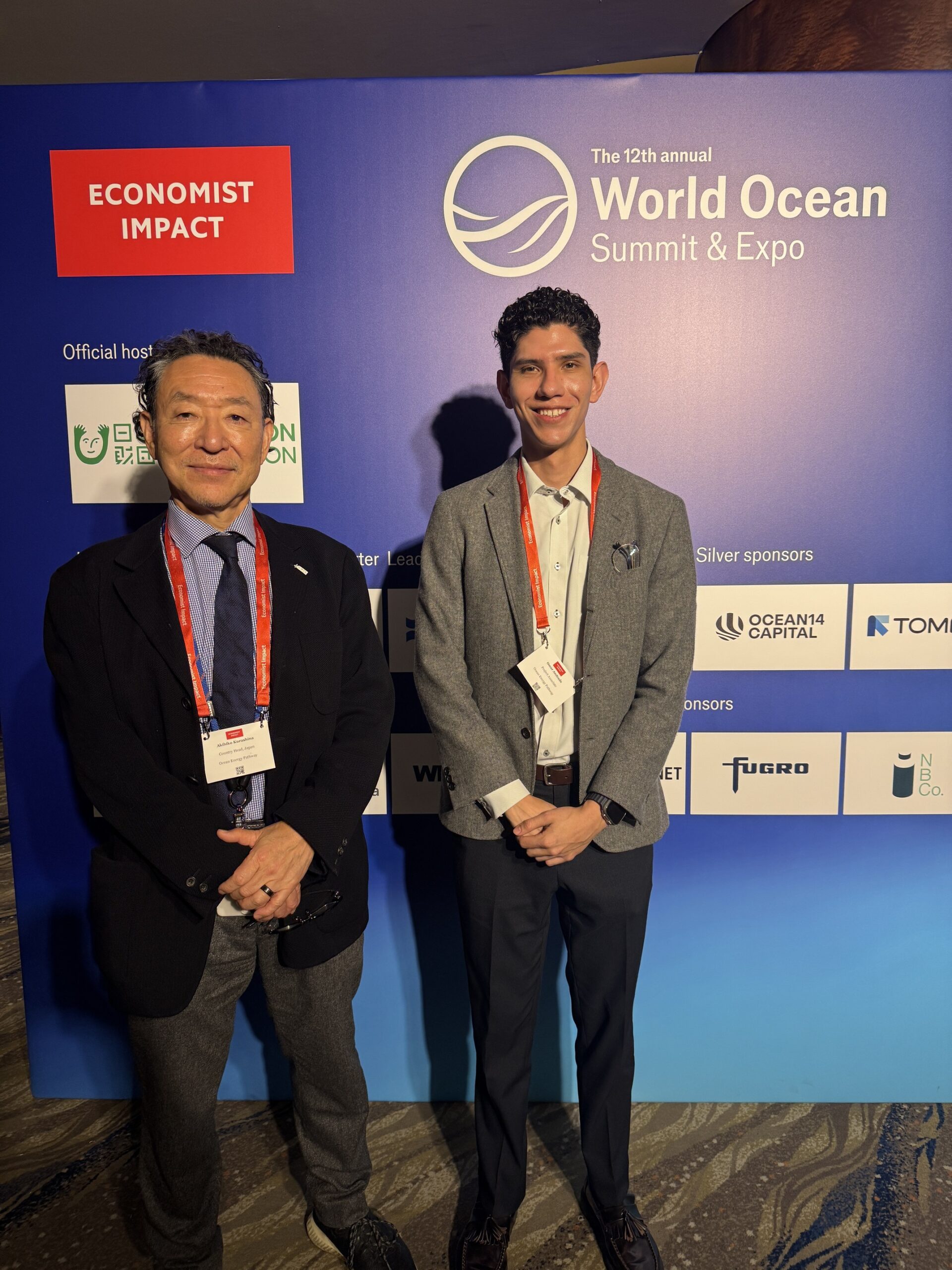Last week, we had the opportunity to participate in the 12th The Economist Impact World Ocean Summit & Expo in Tokyo, where ocean-related industry leaders, policymakers, investors, ocean advocates, and other members of the ocean community gathered to discuss and share views on how to accelerate the development of a sustainable ocean economy and instigate immediate action on ocean conservation and restoration.
Ocean Energy Pathway (OEP) met with stakeholders across the sector to discuss how we can sustainably scale the offshore wind sector as part of a thriving blue economy. It became clear through our conversations that:
- Sustainable ocean economy and blue finance are gaining momentum as key frameworks through which to view policy-making.
- We need standardised, high-quality ocean data to support ocean action, especially on biodiversity.
- Offshore wind can play a key role in delivering on ambitious renewables targets, but challenges remain.
The summit underscored that while significant progress is being made, much work remains to be done on the transition to a sustainable ocean economy. Continued multi-disciplinary collaboration, innovation, and financial commitment are all required. As industries scale and new technologies emerge, stakeholders must ensure that economic growth and ocean health go hand in hand.
The rise of sustainable ocean finance
The economic value of natural ecosystems, including the ocean, has long been overlooked – but that is beginning to change. At the Summit, financial leaders emphasised the need to integrate the ocean’s value into economic and financial models, making it visible and measurable. While some argue that natural value cannot be reduced to numbers, others see valuation as a way to attract large-scale investment and government action.
Investors are increasingly looking at ocean-related projects as viable long-term opportunities, from renewable energy to marine conservation. Discussions at the Summit highlighted key financial tools driving this shift, including Blue Bonds, impact investing, and blended finance models, all of which are essential for mobilising capital toward a sustainable ocean economy.
Standardised ocean data is essential for sustainable development
A recurring challenge across sectors is the lack of consistent, high-quality ocean data. Whether for offshore wind development, biodiversity monitoring, or climate modelling, stakeholders emphasised the need for standardised data collection and open-access platforms. The push for digitalisation and AI-driven analytics is expected to play a key role in addressing these gaps. This is especially relevant for ensuring nature-positive infrastructure development. The Summit emphasised the need for science-based policies, Marine Spatial Planning (MSP), and cross-sector collaboration to ensure that economic development does not come at the cost of marine biodiversity.
A recurring challenge is the lack of consistent, high-quality ocean data.
Offshore wind is scaling, but challenges remain
With its extensive coastline and ambitious renewable energy targets, Japan has the potential to become a global leader in offshore wind and sustainable ocean initiatives. At the Summit, Sakai Manabu, Minister of State of Ocean Policy, reaffirmed Japan’s commitment to offshore wind.
Industry experts highlighted the need for long-term policy stability as an enabler of project success, as well as supply chain resilience, marine spatial planning, and industrial planning. Collaboration between governments and private sector players was highlighted as a critical factor in unlocking offshore wind’s full potential. Floating offshore wind, in particular, is gaining traction, offering opportunities to harness wind energy in deeper waters.
Looking forward
OEP’s role in accelerating offshore wind aligns with the global push for a resilient blue economy. We’re focused on building strategies to support an improved policy environment and increased stakeholder collaboration, helping to deliver an offshore wind sector that contributes to both economic growth and environmental stewardship.
It was great to attend the Summit and hear from stakeholders across the blue economy and offshore wind sector. The discussions and insights will inform our ongoing and future work to support the sustainable scale-up of offshore wind in Japan and other key markets around the world.
Akihiko Kurashina, Country Head, Japan
Omar Andrade, Project Associate, Japan




